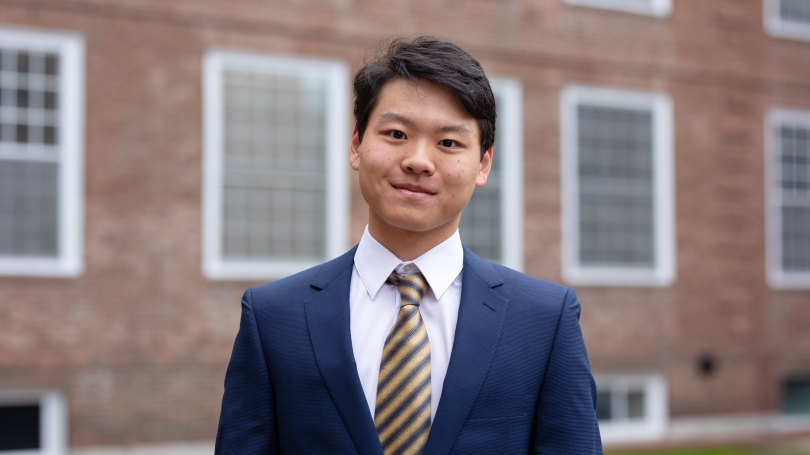
- Public Policy
- Leadership
- Funding
- News & Events
- About the Center
Back to Top Nav
Back to Top Nav
Back to Top Nav
Back to Top Nav
As a First-Year Fellow, Amy Hu ’21 interned at the Brookings Institution under the mentorship of Aaron Klein ’98. Here is an excerpt from her final report.
This summer, I interned at The Brookings Institution, a non-partisan think tank that values open-minded inquiry and is devoted to independent, in-depth research to develop innovative, applicable solutions to policy issues. Over 300 scholars from both government and academia backgrounds come together to research and analyze policy issues in topics such as foreign policy, economics, development, governance and metropolitan policy providing diverse points-of-views and policy recommendations. Brookings seeks to combat the challenges facing the United States and the world through rigorous, innovative, evidence-based research that generate fresh thinking and innovative policy solutions as well as increase diversity in the scholarly community.
During the internship, I worked in the Economic Studies Program in the Center on Regulation and Markets focusing on data and policy analysis in infrastructure investment, financial technology and payments, and financial regulation. I contributed to research reports and opinion articles in major news sources through gathering data and conducting analysis on how to more efficiently invest in infrastructure, how to shift U.S. immigration attitudes, the U.S.-China trade war, the rise of the Chinese payment system based on phones and QR codes which has leapfrogging cards, magnetic stripes, and possibly the banking system, and American Express’ ability to force the middle-class to subsidize the wealthy through the payment system. Additionally, I performed data visualization on aggregate payment data on the new Chinese digital payment ecosystem and the trends in the selection of regional banking presidents showing the problem of groupthink within the Federal Reserve system. I analyzed the impact of the Trump administration’s infrastructure proposal and the importance of integrating regional transportation and infrastructure planning and operations to promote smart growth. I also implemented a new client relations management system to promote meaningful dialogue between policymakers and scholars.
Coming from a research background in academia, I had a solid grasp of research methods and how to conduct research. However, the fellowship illuminated an aspect of research I had never previously focused on: the communication of findings to a broad audience. Working with the communications team in Economic studies and my mentor, I realized not only the necessity of evidence-based policy making and analysis, but also, more importantly, the success of the policy recommendation in reaching a broad audience in addition to key stakeholders. Because of the nature of policy-making, it is crucial that the reports and policy recommendations gain traction at the right time and place to have the momentum it needs to make effective policy change.
After college, I hope to pursue a career as an economist. My goal is to specialize in economic policy, using quantitative analysis and new technologies to aid in the development of effective policy solutions. Better understanding of how investment in transportation networks affect economic costs is necessary in order to determine how to optimally allocate public transportation investment to optimize economic outcomes. Aiding him in his research of the transportation infrastructure investment would give me a solid background on this topic that will continue to shape economic policy in years to come. Overall, my time at Brookings allowed me to work on a wide range of issues and topics to help me further narrow and solidify my interests in economics. I am now even more sure of my plan to pursue a graduate degree in economics. Brookings allowed me to gain exposure to some of the most pressing public policy issues today and shed light on the process behind writing a report. I learned to look further than just the best solution, but to also consider it in the framework of complex relationships of policy-making. I found that I like the fast pace of research at Brookings and working there has help me dig deeper into our complicated financial system.
I am overwhelmingly grateful to the Rockefeller Center and its sponsors for this opportunity to both intern in DC and participate in the First-Year Fellowship. Through this program, I was able to build a community and have gained invaluable experience in policy analysis.